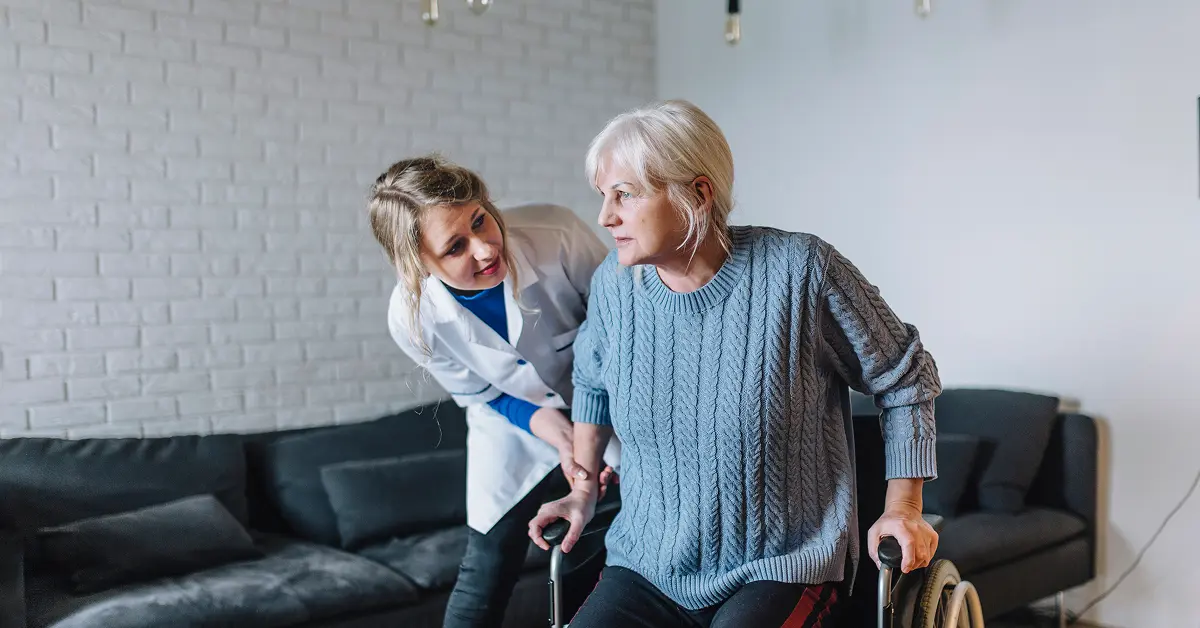In India, family caregivers often shoulder immense responsibility without expecting recognition or relief. Whether it's caring for an aging parent, a disabled spouse, or a chronically ill child, caregivers often sacrifice their own needs for the well-being of their loved ones. But what happens when the caregiver becomes too drained to give care?
For caregivers who feel like they never rest, self-care is not a luxury — it is a necessity. Without it, you risk physical burnout, emotional fatigue, and even serious health issues. This blog post will guide you through practical and sustainable self-care tips, especially tailored for Indian family caregivers who are constantly on the move.
Why Self-Care Matters for Caregivers
In Indian culture, caregiving is often seen as a moral and emotional obligation. This deep sense of duty can make caregivers feel guilty for taking a break or prioritising their own needs. However, caring for yourself is essential if you want to continue caring for someone else.
Neglecting self-care leads to:
- Emotional exhaustion
- Sleep disturbances
- Anxiety or depression
- Weakened immune system
- Relationship conflicts
Think of it like the safety instructions on an airplane: “Put on your own oxygen mask before assisting others.” You are no good to your loved one if you’re constantly sick, angry, or drained.
Schedule “Me Time” Every Day
You may think it's impossible to carve out time for yourself — but even 15 to 30 minutes a day can recharge your mental and emotional energy.
Ideas:
- Morning meditation or evening prayer
- Reading a few pages of a book
- Listening to devotional or relaxing music
- Sipping tea alone on the balcony
- Journaling your thoughts
Make it sacred. Just like you prioritise medications or appointments, prioritise your time for self-reflection and peace.
Don’t Be Afraid to Ask for Help
Indian families often live in joint or extended setups, but caregiving still tends to fall on one person. Learn to delegate tasks.
Ask help from:
- Siblings or other relatives
- Neighbours you trust
- Community groups or NGOs offering caregiving support
- Hired help (ayahs, home nurses, domestic workers)
Explain clearly what kind of support you need: cooking, grocery shopping, watching your loved one while you take a nap. Most people are willing to help — they just don’t know how unless you tell them.
Prioritise Your Health Check-Ups
Don’t skip your own doctor visits while managing someone else’s care. Schedule your annual physicals, dental check-ups, and any tests your age or medical condition requires.
Also focus on:
- Eating balanced, home-cooked meals
- Drinking enough water (minimum 2-3 litres daily)
- Avoiding excessive caffeine or fried foods
- Taking short walks or doing yoga stretches
If you fall sick, you’ll have double the stress. Prevention is easier and cheaper than cure.
Create a Backup Care Plan
One of the biggest stressors for caregivers is the fear of “What if something happens to me?” Ease that burden by preparing a backup plan.
Steps:
- Document the daily routine of the patient or loved one
- Make a list of medications, doctors, emergency contacts
- Train another family member or helper to follow basic caregiving duties
- Keep important documents easily accessible (Aadhaar card, medical history, prescriptions)
This not only gives you peace of mind, but also allows you to take a guilt-free break when needed.
Join a Caregiver Support Group
You are not alone. Thousands of Indian caregivers are silently battling burnout just like you. Joining a local or online support group helps in sharing stories, getting advice, and realising you're not the only one struggling.
Options in India:
- Facebook or WhatsApp caregiver groups
- NGOs like Dignity Foundation, Helpage India
- Community elder-care initiatives
- Church, temple, or gurdwara volunteer circles
Just talking to someone who understands your daily challenges can be healing in itself.
Learn to Say No
One of the hardest but most powerful self-care strategies is learning to say “No” without guilt. Whether it’s extended relatives expecting favours or community members burdening you with extra tasks, protect your time and energy.
You are not obligated to please everyone. Practice setting boundaries politely:
- “I’m sorry, I can’t attend the wedding this time.”
- “I need to rest today; please ask someone else.”
- “Let’s discuss this next week when I’m less occupied.”
Assertive communication is a skill every caregiver should develop.
Use Technology to Ease Your Load
In today’s digital age, a little tech can go a long way in reducing your stress.
Useful tools:
- Medication reminder apps (like Medisafe or Tata Health)
- Grocery delivery (BigBasket, Zepto)
- Online doctor consultations (Practo, Apollo 24x7)
- Video calls to stay connected with relatives
Even setting up CCTV monitoring or automated pill dispensers for bedridden elders can offer peace of mind when you step out for errands.
Practice Emotional Check-Ins
Caregiving comes with a wide range of emotions — love, guilt, anger, frustration, helplessness. Bottling them up is unhealthy.
Try this weekly ritual:
- Ask yourself: What am I feeling today?
- Journal or talk about it
- If overwhelmed, speak to a counsellor or therapist
Mental health is health. Many Indian cities now offer affordable counselling services, and some are even free online. You deserve to feel heard.
Don’t Wait for a Breakdown
Most caregivers keep pushing until they collapse. Don’t let it reach that stage. Watch for early signs of burnout:
- Irritability
- Sleep problems
- Frequent headaches or body pain
- Withdrawing from friends and family
- Crying often or feeling numb
When these signs show up, take it seriously. Take time off — even if it's just for a day or two. Prevention is key.
Reward Yourself Often
Celebrate small wins. Did your loved one have a better day? Did you finally get a full night’s sleep? Did you manage to organise the medications better?
Treat yourself:
- Watch a movie you love
- Order your favourite food
- Buy yourself something useful or beautiful
- Visit a temple or quiet place for peace
These small joys make a big difference in breaking the monotony of caregiving.
Final Thoughts
Being a caregiver is an act of love, but love doesn’t mean neglecting yourself. If you constantly run on empty, you won’t have anything left to give. In the Indian context, where caregiving is often lifelong and 24x7, self-care is not selfish — it is your lifeline.
Implement just a few of these tips and you’ll start to feel more energetic, emotionally balanced, and ready to face each day with resilience. Your well-being matters — for you and for those who depend on you.
Liked this blog? Share it with another caregiver who deserves a moment of self-care.
Contents
- Why Self-Care Matters for Caregivers
- Schedule “Me Time” Every Day
- Don’t Be Afraid to Ask for Help
- Prioritise Your Health Check-Ups
- Create a Backup Care Plan
- Join a Caregiver Support Group
- Learn to Say No
- Use Technology to Ease Your Load
- Practice Emotional Check-Ins
- Don’t Wait for a Breakdown
- Reward Yourself Often
- Final Thoughts
Our 24*7 services
Latest Posts
- What Is Respite Care and Why Is It Important
- Affordable home care for senior citizens in India
- Caring for Seniors with Dementia or Alzheimer's at Home
- Senior Caregiving A Guide for Every Family
- How to Write a Caregiver Resume That Gets You Hired
- How Care After Hospital Discharge Speeds Up Recovery at Home
- How to Get Home Health Care for Seniors Through Medicare
- What Does a Senior Citizen Caregiver Really Do at Home
- How to Care for Elderly Parents with Alzheimer’s or Dementia
- How to Get 24-Hour Care for Seniors at Home



